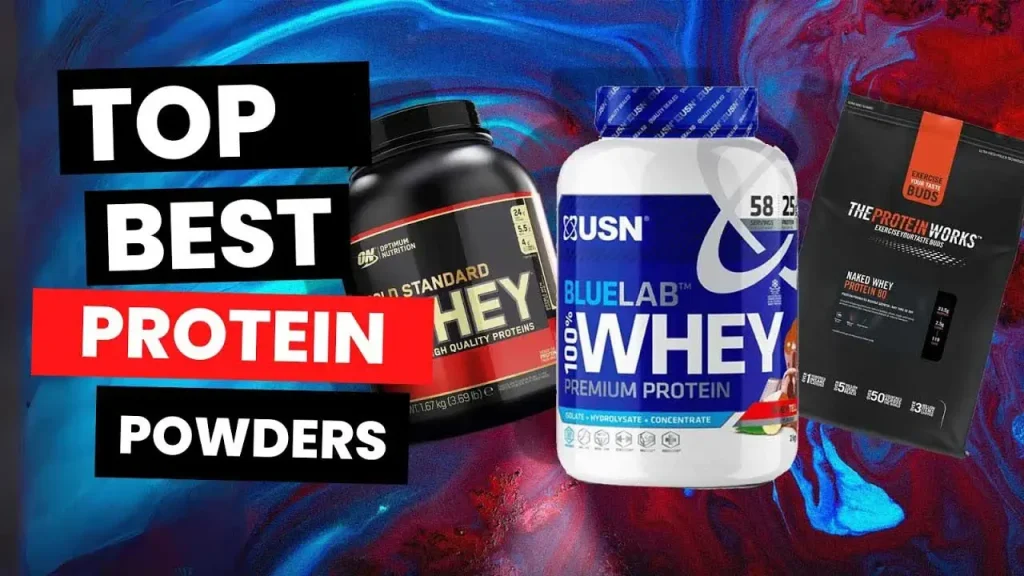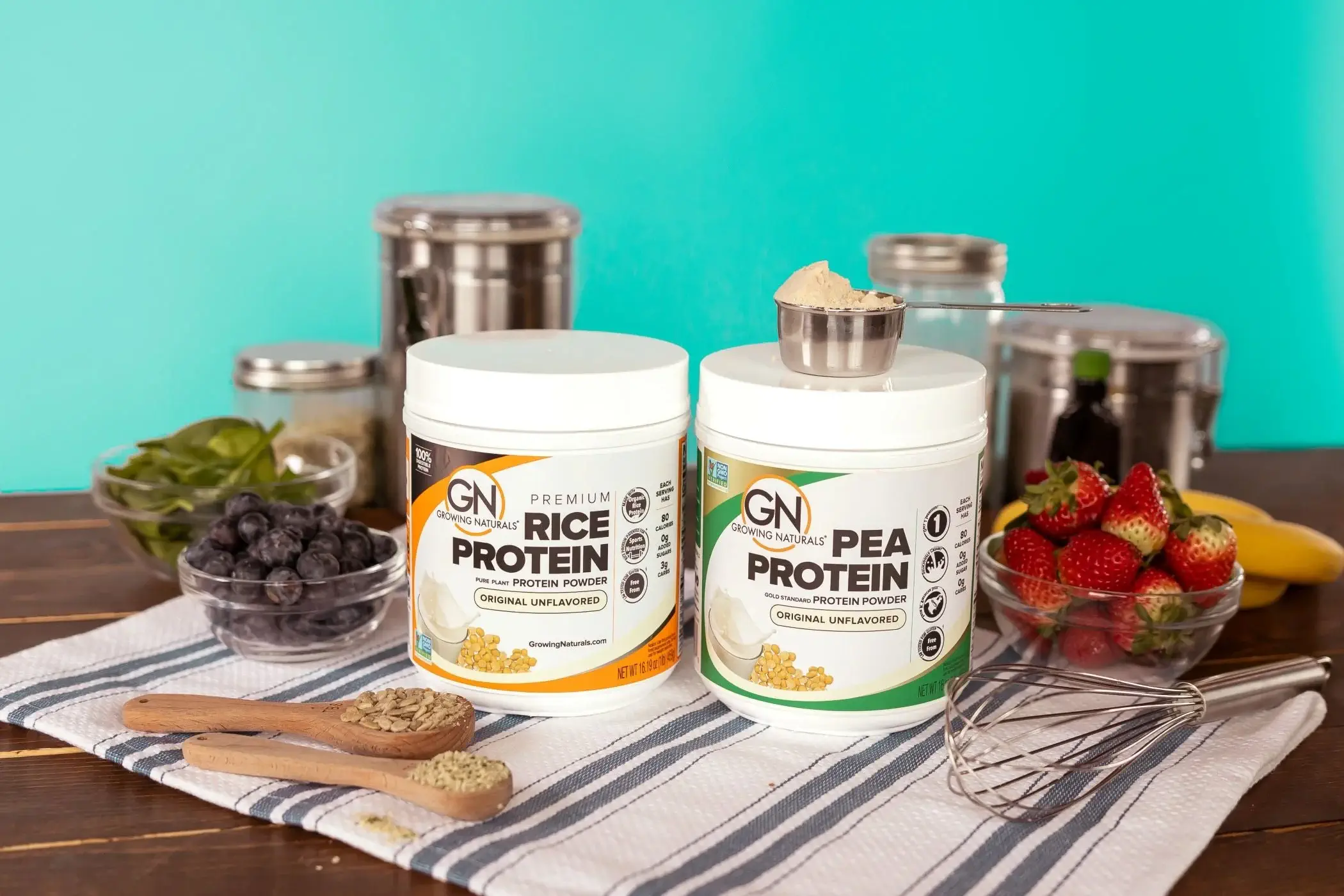
Top 6 Best Protein Powder for Seniors Over 80
Taking the best protein powder for seniors over 80 has many benefits for these people. As you get older, your health changes. Aging not only affects how you look and feel, but it also changes your body’s need for nutrients. That’s why sometimes taking supplements for the elderly seems essential.
Fortunately, there are many supplements available today that can meet your nutritional needs well into old age so that you can feel your best about yourself. In this article from Human Health Mag, we will point out the most important supplements necessary for the elderly. Stay with us until the end of this article.
The Importance of Supplements for Seniors
Consuming the best protein powder for seniors over 80 is very important. The human body undergoes changes due to aging and illness. Many of these changes change nutritional needs and increase the risk of deficiency. For this reason, it is necessary to meet the individual’s nutritional needs and use the best protein powder for seniors over 70 on a daily basis. Many people experience a decrease in appetite as they age, making it challenging to meet their nutritional needs. This is a reason to turn to supplements.
As people age, their stomachs usually produce less acid. This reduces the absorption of micronutrients such as protein, vitamin B6, vitamin B12, iron, and calcium. For this reason, adults over 50 years of age will need to consume more of these nutrients. Many elderly and sick people also experience a decrease in bone mass. For this reason, people over 70 years of age will need to consume more protein, calcium, and vitamin D. Essential nutritional supplements for the elderly can be divided into several groups:
Vitamins and Protein
- Without the presence of vitamins and proteins in the body, no organ can function properly and may fail. Vitamins guarantee the health of the body and play a significant role in the treatment of many diseases such as cardiovascular problems, high cholesterol and vision disorders. Proteins can also meet your body’s daily needs.
Minerals
- Among the important minerals needed by the body are calcium, sodium, magnesium and potassium. Calcium, along with vitamin D, strengthens bones. One of the important minerals that should be in the daily diet of the elderly is sodium. Magnesium also plays a role in many enzymatic reactions in the body. Potassium, which is one of the nutrients needed by the body, increases mobility in a person and reduces the risk of stroke. Also, consuming best protein powder for 60 years-old woman has many benefits for women.
Probiotics and Fiber
- In fact, live, beneficial bacteria are very important for the digestive system, especially the intestines. The functions of these bacteria include converting fiber into fatty acids, synthesizing certain vitamins, and supporting the immune system.
What is the Best Protein Powder?
There are three common forms of best protein powder for seniors over 80:
- Protein concentrate: Made by extracting protein from whole foods. Typically, 60 to 80 percent of this type of powder is protein, with the remaining 20 to 40 percent being fat and carbohydrates. All types of protein contribute to weight gain tips for the elderly.
- Protein isolate: The additional filtration process removes more fat and carbohydrates. Isolate proteins contain about 90 to 95 percent protein.
- Hydrolyzed protein: Made by breaking the bonds between amino acids. Hydrolyzed proteins are absorbed more quickly by the body. They can also increase muscle growth after a workout.
Some powders are also fortified with vitamins and minerals, especially calcium. However, these powders are not suitable for everyone. If you have a protein-rich diet, adding protein powder will not make much of a difference in your quality of life. Protein powders are also helpful for sick people, the elderly, and some vegetarians who cannot get enough protein from food. Although all types of best protein powder for seniors over 80 are good sources of protein, certain types may be more effective in meeting the body’s needs.
- To gain muscle: Based on research and evidence of the effect of whey protein in promoting muscle mass and accelerating recovery, this protein is often recommended for this purpose.
- To lose weight: Casein, whey proteins, or a combination of the two may be the best protein supplements to increase satiety and reduce fat in obese older adults.
- For vegetarians: Protein powders that contain 100 percent high-quality plant proteins, such as pea, brown rice, and hemp proteins, are a good option for these people.

Best Protein Powders for Seniors Over 80
Adults over 65 need more protein than younger people, so consuming the best protein powder for seniors over 80 has many benefits for them. Studies show that increasing protein intake by seniors is associated with increased muscle mass and improved muscle function. As we age, muscle mass and muscle strength decrease, which can increase the risk of falling and make it more difficult to perform daily activities. People who need more protein can add a scoop of protein powder to various foods, such as smoothies or pancakes. The best types of protein powders are:
Entrameal Protein Powder
- Entrameal High Protein Powder contains large amounts of protein, which increases energy and improves nutritional status in elderly and sick people. This supplement, as a multivitamin, helps provide minerals and vitamins in the body. The protein in this product helps to gain weight and improves severe weight loss in people. Full of protein, with its probiotic properties and banana flavor, it helps reduce diarrhea and constipation. This unique supplement is gluten-free, which is very suitable for hereditary digestive patients (celiac) who are sensitive to gluten.
Whey Protein Powder
- Whey protein is an excellent and quickly absorbed source of protein that contains all the essential amino acids, especially leucine. Leucine plays a key role in stimulating muscle protein synthesis. Consuming whey protein after exercise helps in muscle recovery and prevents muscle loss. For older people who may have difficulty absorbing protein from food, whey protein supplements are an effective solution.
Casein Protein
- One example of the best protein powder is casein. Like whey protein, casein is a protein found in milk. However, the digestion and absorption of casein is much slower. Casein forms a gel when it reacts with stomach acid, thus slowing down the emptying of the stomach and delaying the absorption of amino acids. As a result, the gradual exposure of muscles to amino acids slows down the rate of muscle protein breakdown. One study in overweight men suggests that casein may be better than whey protein at improving body composition during resistance training when calorie intake is restricted.
Soy Protein Isolate
- For older adults who avoid dairy, plant-based protein powders like soy protein isolate offer many benefits and can help meet their protein needs. These proteins have a lower amino acid profile and lower bioavailability than animal-based proteins. Bioavailability is a measure of how well and how quickly a substance, such as a nutrient or drug, is absorbed and used by the body.
Brown Rice Protein
- A protein powder made from brown rice. Although rice protein contains all the essential amino acids, it is not considered a complete protein due to its low lysine content. Although there is not much research on rice protein powder, one study compared the effects of rice and whey protein powders in young men. The study found that consuming 48 grams of rice or whey protein powder daily resulted in similar changes in body composition, muscle strength, and recovery. However, more research is needed on brown rice protein.
Blended Plant Proteins
- Some protein powders contain a blend of plant sources to provide all the essential amino acids that older adults need. Often two or more of the following proteins are combined: brown rice, pea, hemp, alfalfa, chia seeds, flaxseed, artichoke, and quinoa. Plant proteins are slow to digest due to their high fiber content. This can limit the amino acids that the body can use immediately after exercise.
Benefits of Best Protein Powder for Seniors Over 80
Low protein intake among the elderly leads to muscle loss and osteoporosis. Consuming best protein powder for seniors over 80 in the diet stimulates muscle protein synthesis, which leads to improved lean muscle mass, strength, and performance. Increasing dietary protein intake also improves bone mineral density in the femoral neck, reduces the risk of fractures, and improves total body calcium.
Doctors and nutrition experts recommend a daily protein intake of 0.8 g/kg of protein per day for older adults. This is the minimum amount of protein needed daily to prevent loss of lean body mass. This requirement increases when older adults are hospitalized, especially if they are undergoing major surgery. Protein intake should make up 10 to 35 percent of daily energy intake.
Concluding Remarks
As you age, your body needs the best protein powder for seniors. Therefore, there are many recommendations regarding the use of supplements and best protein powder for seniors over 80. However, not all seniors need supplements, and these products are only useful for people who cannot meet all their nutritional needs through diet. If you think you are one of these people, consult your doctor or nutritionist about starting a supplement.
Thank you for following this article so far. If you also have information or experience in this field, you can share it with us and other users.

Frequently Asked Questions
Are Whey Protein and Creatine Good for Seniors?
Yes, both supplements are very beneficial. Whey protein helps in muscle recovery and prevents muscle wasting due to its fast absorption and essential amino acids. Creatine is also one of the most effective supplements for increasing strength and muscle mass and can improve physical performance in seniors.
Why Should Older Adults Consider Supplements Like Protein Powder?
As we age, our bodies experience changes such as loss of muscle mass (sarcopenia), decreased bone density, and decreased ability to recover. These changes can lead to weakness, fatigue, and an increased risk of injury. Sports supplements like protein powder can help fill nutritional gaps, support muscle building and recovery, and improve overall performance as we age.
How Much Protein Should Seniors Over 80 Consume?
Most doctors and nutritionists recommend that seniors consume at least 1.0 to 1.2 grams of protein per kilogram of body weight per day. This means that someone weighing 65 kilograms should consume about 65 to 80 grams of protein per day.
